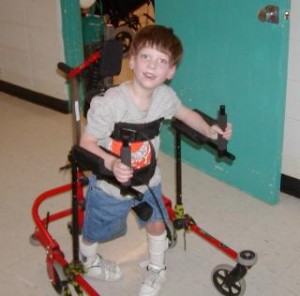Hypertonic Cerebral Palsy in Children
The word “hypertonic” refers to a heightened muscle tension, rigidity, and/or muscle stiffness. This type of CP is often associated with spastic cerebral palsy.

Hypertonia symptoms are among the most-characteristic symptoms of cerebral palsy. Most of the time, if somebody under the age of two manifests these symptoms, there is an accompanying diagnosis of cerebral palsy. There are a slew of new treatment options available for this particular classification of cerebral palsy, which parents of children affected by it may want to consider.
The defining characteristic of hypertonia is too much muscle tension. The person affected by this condition may also have an inability to stretch their muscles as would a person without the condition. This particular symptom is caused by damage to the central nervous system, and the symptoms can sometimes be severe. In some cases, the symptoms are so intense that the person affected has trouble moving at all.
Treatment Options For Children with Hypertonia
In some cases, doctors may be able to effectively combat hypertonia by delivering medication directly to the muscles. Some injections and oral medications can reduce the severity of these symptoms. In other cases, however, physicians will have to rely on surgeries, which are far more expensive and which carry with them the dangers characteristic of any surgery.
Some cerebral palsy sufferers have been relieved of the paralysis brought on by certain manifestations of hypertonia by having the specific nerves causing the problem severed permanently. This, of course, is a relatively new procedure and a very advanced one at that. Nevertheless, it has enabled some cerebral palsy sufferers who could not stand on their feet previously to walk and run and otherwise enjoy having greatly increased mobility.
Some of the symptoms that parents of children with cerebral palsy may see related to hypertonia include dystonia, difficulty keeping postures, spasms, and tremors. If your child’s treatments are not effectively addressing this symptom of their condition, you may want to consider talking to your physician about newer treatment options that have become available over the last decade.
